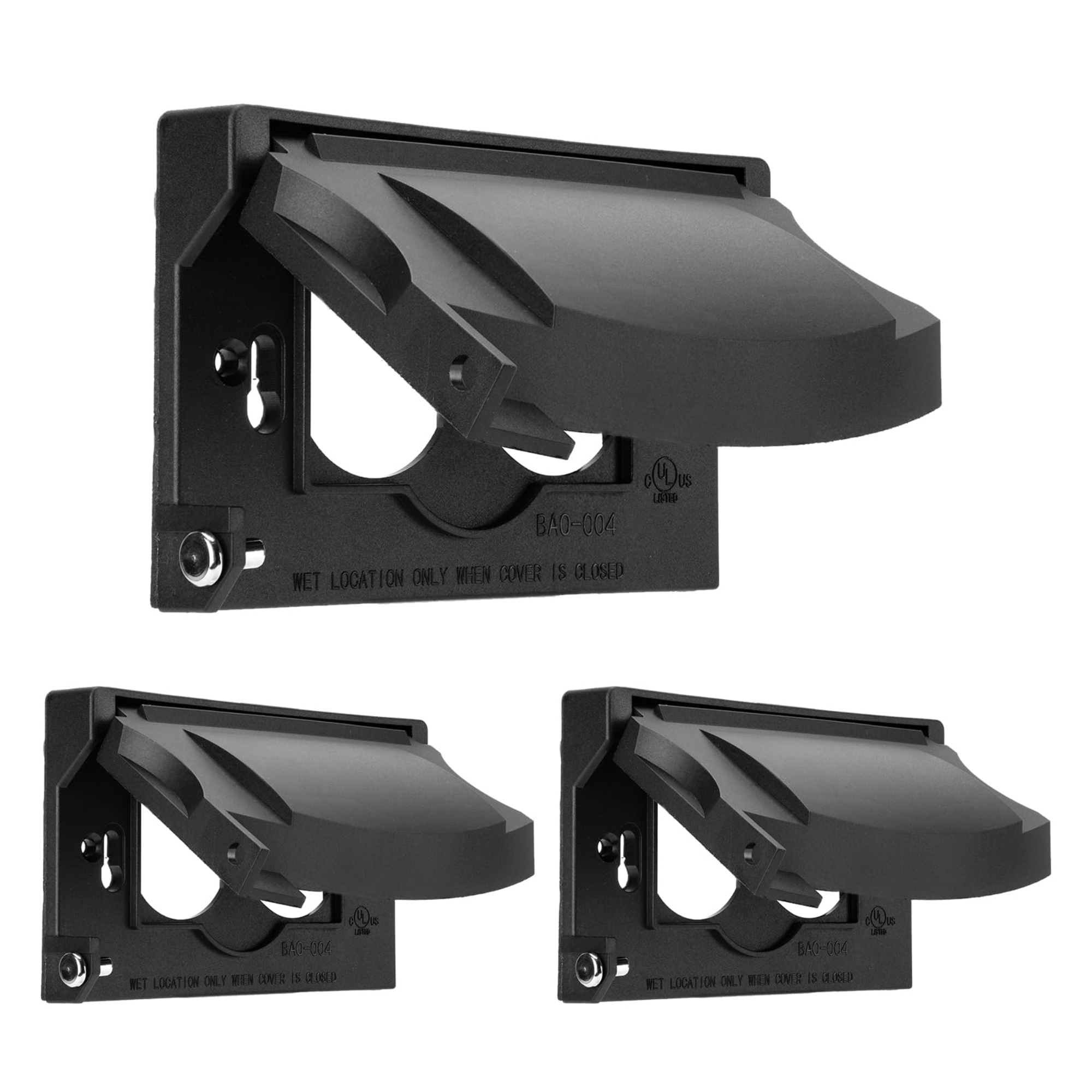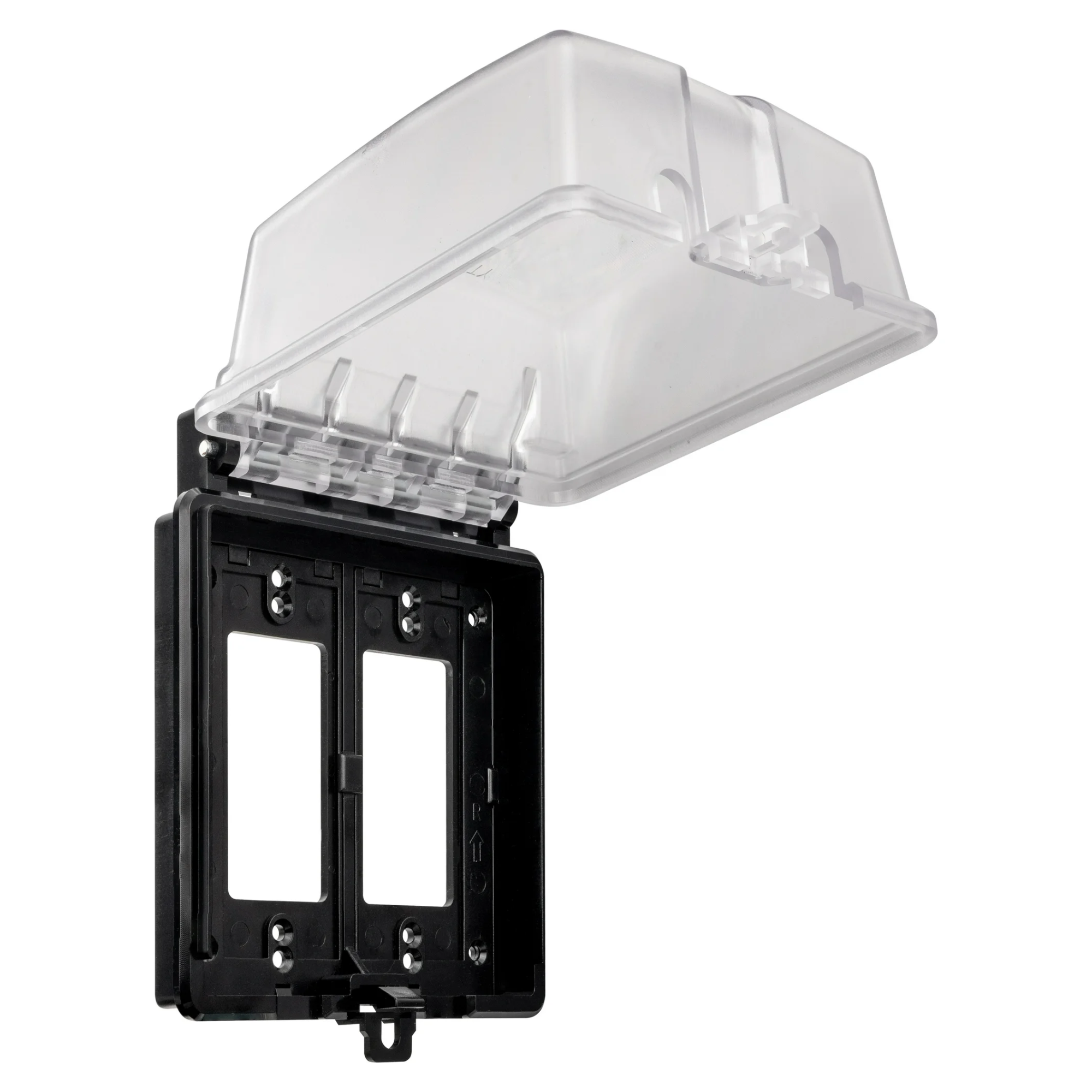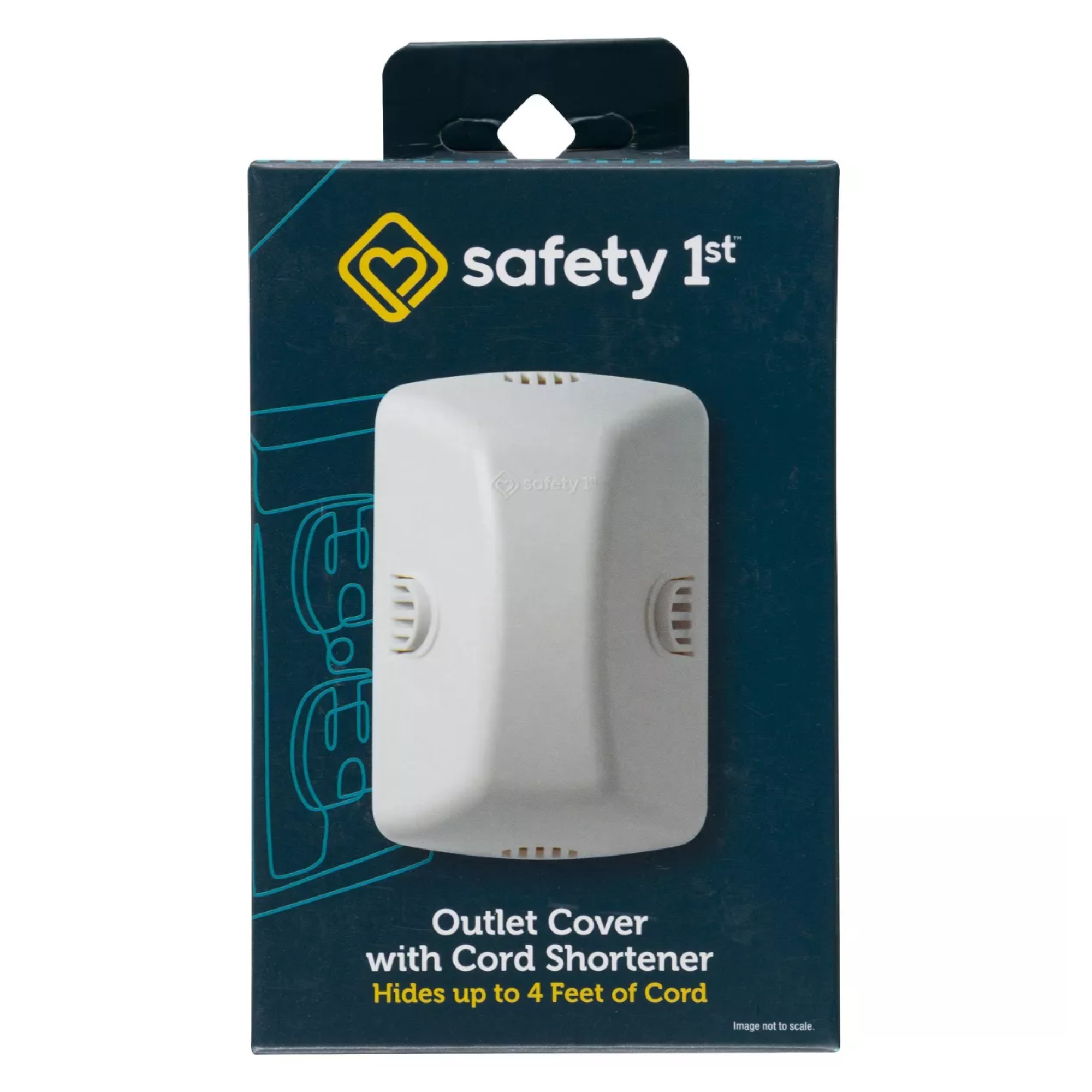How to Protect Outdoor Outlets — Tips From Certified Electrical Experts to Keep Your Patio Safe
Take a note and safeguard your outdoor electricals from the elements

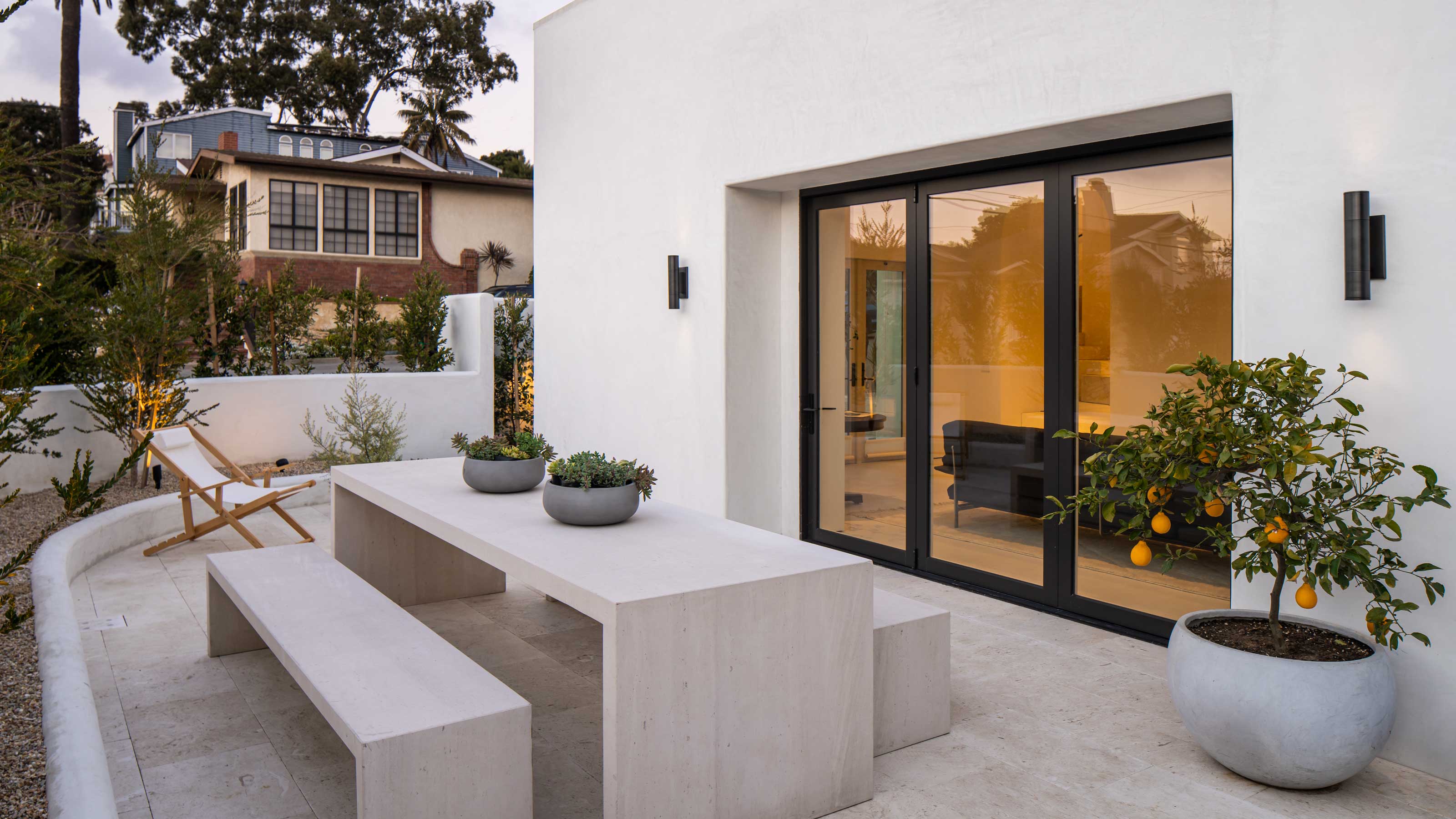
We're well into the seasons that call for spending time outdoors. And nowadays, sitting in your backyard and being disconnected are no longer mutually exclusive. Whether it's to keep your devices charged or your corded garden supplies working, chances are you probably have an outlet handy nearby.
But whether you have outdoor smart plugs in place or standard electrical outlets, it's important to make sure your exterior lounging space is safe. And keeping your outlets covered is the first step to doing so.
Following this expert advice will ensure that your patio is energized and efficient while also allowing you to enjoy the space regardless of the weather conditions in your area.
How to protect outdoor outlets?
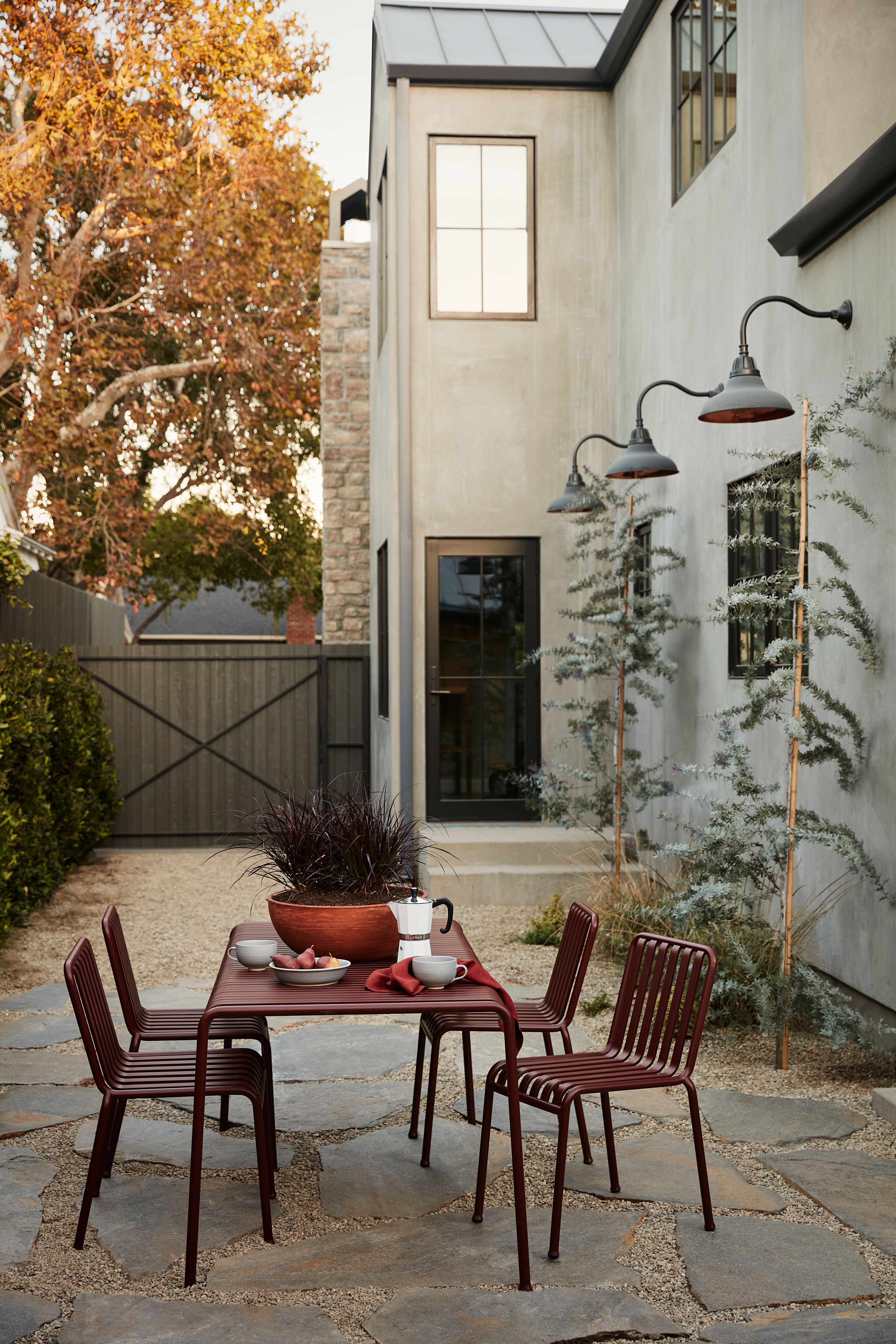
According to electrical expert Reynaldo Rios, protection of outdoor outlets is not just about making sure they will work, it's also about the safety standards according to the National Electrical Code (NEC).
He explains that a Ground Fault Circuit Interrupter Receptacle or GFCI should be installed on every outdoor outlet. "GFCIs constantly monitor the flow of electricity and turn off power extremely fast, in a fraction of a second, in the event of an imbalance," he explains. "This reduces the potential for electric shock or fire."
Reynaldo also tells us that installing GFCIs is more than best practice and that under the NEC, GFCIs are mandated for all outdoor outlets.
Licensed electrician and construction expert Richard Garrett also finds that weatherproof covers can be extremely instrumental in protecting your outlets and by extension, those stylish garden patio ideas.
The Livingetc newsletters are your inside source for what’s shaping interiors now - and what’s next. Discover trend forecasts, smart style ideas, and curated shopping inspiration that brings design to life. Subscribe today and stay ahead of the curve.
"When installing outlets, I also ensure my team uses UV-resistant materials for all outdoor electrical work," he says. "These simple solutions prevent damage and injury, allowing proper enjoyment of outdoor spaces."
Why should you protect outdoor outlets?
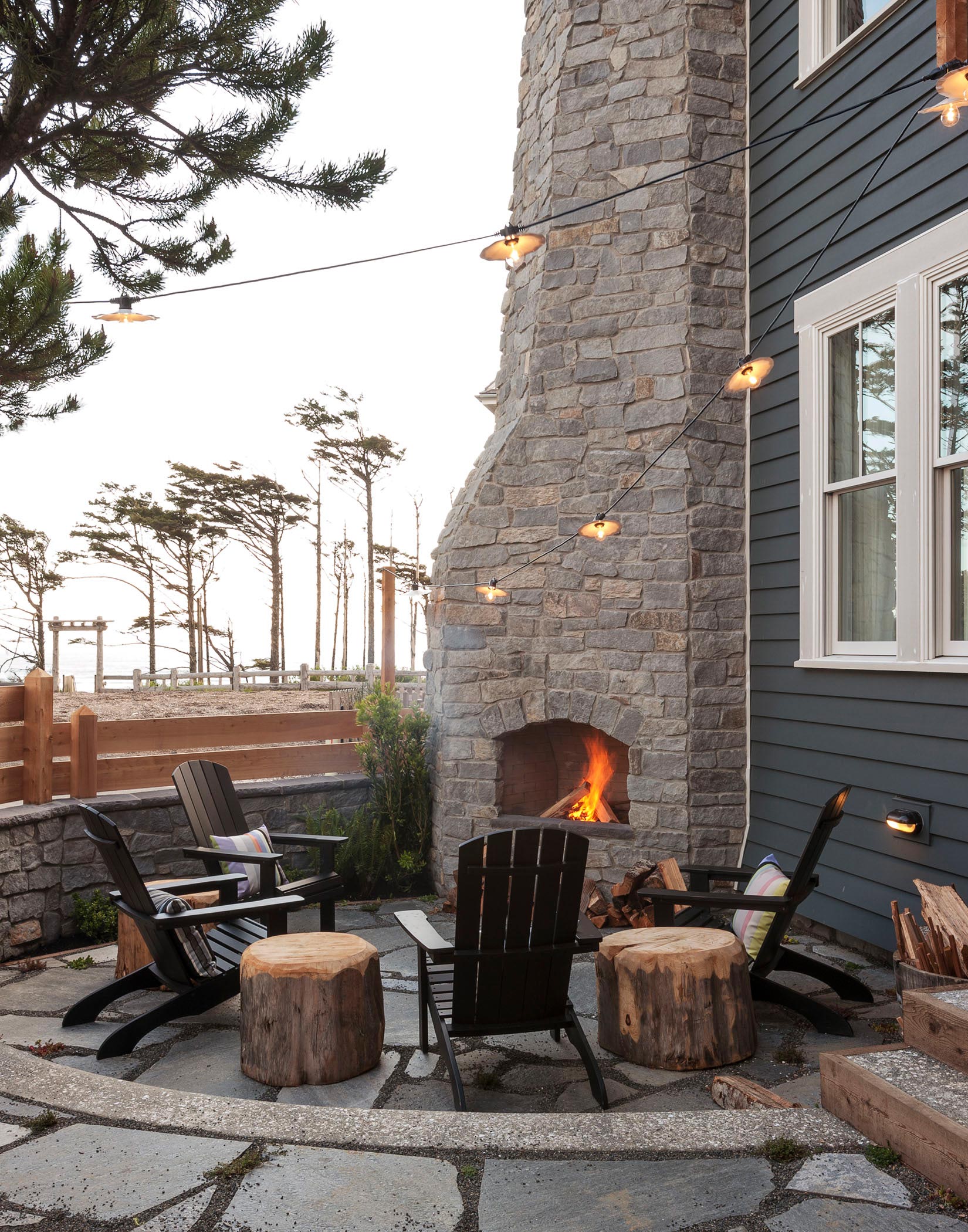
Reynaldo explains that leaving outdoor outlets bare easily exposes the receptacles to the elements, thereby "permitting infiltration of moisture that causes corrosion. This is why, as a professional electrician, I always insist on the use of weatherproof, in-use covers," he says. "These flaps are designed to remain closed when a device is plugged in to provide constant rain, snow, and dust protection."
He further advises, that homeowners survey their backyard and regularly inspect all outdoor outlets themselves. "It will involve checking for any signs of wear like cracks on the outlet covers or corrosion on the terminals," he says. "And if any problems are discovered during the inspection, they must be attended to right away to avoid further damage or safety threats."
While doing these extra checks may seem like a bit of a chore, it's these quick inspections that will prevent your outlets from going dead or worse, sparking up. The last thing you want is to step outdoors and plug your device in for a quick charge, only for the outlet to catch fire in the process and ruin your beloved outdoor furniture.
Richard also tells us that outdoor outlets definitely require protection from the elements to prevent damage to exterior structures. He finds that safeguarding your connections and opting for purpose-built components is the best way to avoid recurring long-term costs and proper outdoor safety. "After 20 years of experience, I've seen what happens when people cut corners - don't do that," he says. "Do it once and do it right."
Our top buys to keep your outdoor outlets safe
FAQs
Should outdoor electrical outlets be covered?

Although it may seem complex, it's actually pretty easy to safeguard your outdoor electrical outlets. All you really need is a weatherproof 'bubble' cover — like this Bates Weatherproof Electrical Outlet Cover from Amazon.
Simply pull the cover down over the outlet when not in use to keep it safe from rain, dust, and other outdoor elements that may cause damage to the plug points.
Saving outdoor outlets from rain
Water and electricity aren't a good match, as we all know. So something as simple as keeping your outdoor outlets covered can save your outlets and keep you safe too.
A wet electrical outlet can cause serious shock and even a power outage across your home if connected to the main unit.
So as a safety precaution, it's best to keep them covered from the rain!
A safe home goes hand in hand with a chic one. You don't want to invest tons of money into sprucing up your outdoor spaces, only to have them be damaged because of overlooking basic electrical precautions.
Consider this your sign to check your outdoor outlets or have a certified electrician take a look and add on any outlet covers where necessary. This way you won't have to think twice before plugging into an outlet outside.

Amiya is a Home Wellness Writer at Livingetc. She recently graduated with a Masters Degree in Magazine Journalism from City, University of London, and has lent her words to beauty, fashion, and health sections of lifestyle publications including Harper’s Bazaar and Women’s Health. Her experience as a research analyst has equipped her with an eye for emerging trends. When she’s off the clock, she can be found reading, listening to music, or overanalyzing her latest Co-Star update.
